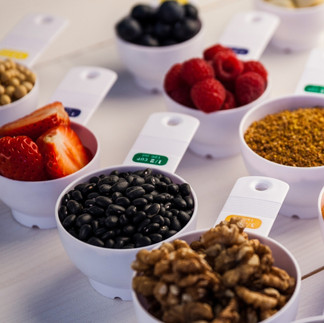Portion Control: Understanding The Basics
- Jun 6, 2024
- 2 min read

One concept that is key to weight management and weight loss is portion control. Understanding and committing to portion control can make a significant difference in achieving your health goals without feeling deprived. Let's dive into the basics of portion control.
What is Portion Control?
Portion control refers to managing the amount of food you consume in one sitting. If you're eating healthy food, but eating too much - you'll still gain weight. By practicing portion control, you can enjoy a variety of foods, avoid overeating, and keep your calorie intake in check.
Why is Portion Control Important?
1. Weight Management: Consistently eating large portions can lead to weight gain over time. Portion control helps you consume fewer calories, making it easier to maintain or lose weight.
2. Better Digestion: Eating appropriate portions aids digestion and prevents discomfort, such as bloating or indigestion.
3. Balanced Nutrition: Portion control ensures you're getting the right mix of nutrients from different food groups without overloading on any one type.
Practical Tips for Portion Control
1. Understand Serving Sizes:
Learn what constitutes a serving size for different foods. For example, a serving of cooked pasta is typically about half a cup, while a serving of meat is around 3 ounces.
2. Use Smaller Plates:
Eating from smaller plates can trick your brain into thinking you're consuming more than you are. This simple switch can help reduce portion sizes without making you feel deprived.
3. Read Food Labels:
Pay attention to the serving sizes listed on food packaging. It's easy to consume multiple servings without realizing it, especially with snacks and processed foods.
4. Measure Your Food:
Use measuring cups, spoons, and a kitchen scale to portion out your
meals, especially when starting out. Over time, you'll get better at estimating portion sizes.
5. Control Portions When Eating Out:
Restaurant portions are often larger than necessary. Consider sharing a dish, asking for a half portion, or boxing up part of your meal to take home.
6. Avoid Eating from Packages:
Eating directly from a bag or box makes it hard to control portions. Instead, portion out a single serving into a bowl or onto a plate.
7. Listen to Your Body:
Eat slowly and pay attention to hunger and fullness cues. Stop eating when you're comfortably full, not when your plate is empty.
Embracing portion control is a fundamental step towards healthier eating and effective weight management.
By understanding and implementing the basics of portion control, you can enjoy a balanced diet, prevent overeating, and make sustainable changes to your eating habits.












Comments